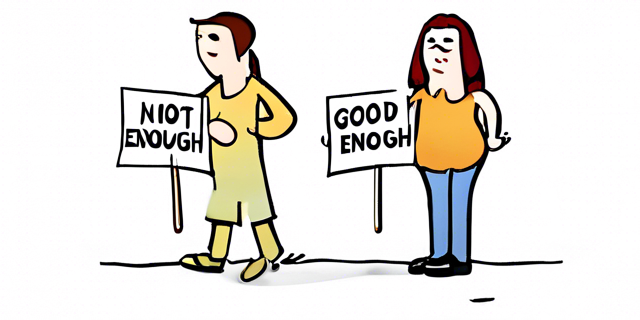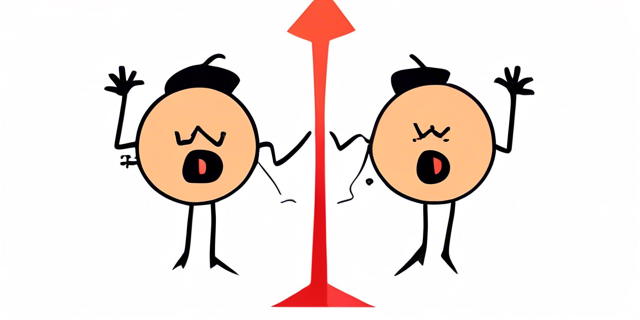I Was Always Told I Wasn’t Enough – And I Believed It

I spent most of my life feeling like I was never enough.
No matter what I did, how much effort I put in, or how many achievements I stacked up, a voice in my head always whispered: You could have done better. You should have done more.
For the longest time, I thought this was normal.
That pushing myself harder, never allowing myself to feel accomplished, and always seeking external validation were just part of being human.
But now I see it for what it really is—a deeply ingrained belief shaped by narcissistic abuse.
The Root of “I’m Not Enough”
Growing up, my father criticized everything I did. Nothing was ever good enough.
If I got a good grade, he’d ask why it wasn’t perfect.
If I tried something new, he’d find a way to make me doubt myself.
Even when I was just a child, looking for approval like all kids do, I never got it.
Instead, I got judgment, teasing, and a constant sense that I was falling short.
Over time, I learned to invalidate myself before anyone else could.
If I was never enough, then I would never be disappointed.

The Trap of Never Feeling Like I’m Doing Enough
Even as an adult, this belief shaped how I saw myself.
I remember going to dance classes a few times a week, putting myself out there, trying to meet people.
By most standards, I was making an effort. I was socializing. I was engaging with the world.
But in my mind?
I wasn’t doing enough.
I would look at other people and assume that they were handling life better than I was. That their efforts were enough. That they had it figured out.
Meanwhile, I saw my own efforts as a waste of time—because I didn’t get instant results.
The irony? My brother was doing even less than I was, and he still managed to meet someone.
That was my first wake-up call.
It wasn’t about how much effort I put in.
It was about how I discounted my own actions as my default setting.

Narcissistic Abuse and the Habit of Self-Invalidation
This need to always do more wasn’t about ambition or personal growth.
It was about a deep-seated survival mechanism.
My father had conditioned me to believe that whatever I did would be criticized. So I learned to criticize myself first.
It was safer that way.
This is a common pattern in people who have suffered narcissistic abuse. We learn that nothing we do is good enough, so we either:
- Overcompensate, constantly pushing ourselves harder while never feeling satisfied.
- Shut down, avoiding action altogether because “it won’t be enough anyway.”
I did both.
When I tried, I dismissed my own efforts.
When I avoided trying, I felt ashamed for not doing more.
How Cognitive Distortions Keep the Cycle Alive
I was also unknowingly trapped in a cognitive distortion called discounting the positive.
Even when I took action, I would immediately find a reason why it didn’t count.
- “Yeah, I went to the dance class, but I didn’t talk to enough people.”
- “Sure, I put myself out there, but I could have done more.”
- “Yes, I’ve been improving, but I’m still not where I should be.”
The goalposts were always moving.
I never let myself win.

Rewiring My Belief System
Recognizing this pattern was a huge breakthrough.
But recognition isn’t enough.
I had to start replacing this belief with a new one.
I had to practice internal validation—giving myself credit, recognizing my efforts, and seeing my actions as enough in the present moment.
Here’s how I started:
1. Noticing When I Discount My Efforts
Every time I caught myself thinking, I’m not doing enough, I would stop and ask:
Would I say this to a friend in my position?
Of course not.
If someone else was putting in the effort I was, I’d tell them they were doing great.
So why couldn’t I extend the same kindness to myself?
2. Reframing My Narrative
Instead of saying:
“I went to dance class, but I didn’t talk to enough people.”
I started saying:
“I showed up today. That’s a win.”
Instead of:
“I haven’t achieved my goal yet, so I need to push harder.”
I told myself:
“Every step I take is progress. I don’t have to have it all figured out today.”

3. Separating My Father’s Voice from My Own
When I felt that nagging voice telling me I wasn’t enough, I would pause and ask:
Whose voice is this? Mine? Or my father’s?
Most of the time, it was his.
Realizing this gave me distance from the thought.
It wasn’t my truth. It was something I was taught—and I could unlearn it.
Embracing “Enough” as a Mindset
Healing isn’t about suddenly feeling 100% confident overnight.
It’s about changing the story you tell yourself.
It’s about learning that you don’t have to do more to be worthy.
It’s about realizing that your efforts count, your actions matter, and you are already enough.
I still have moments where I fall back into old patterns. But now, I catch myself.
I remind myself that I’m making progress.
And that’s enough.
For anyone struggling with narcissistic abuse, limiting beliefs, or self-doubt, I want you to know this:
You don’t have to prove your worth. You already have it.
And no one—not even that critical voice in your head—can take that away from you.